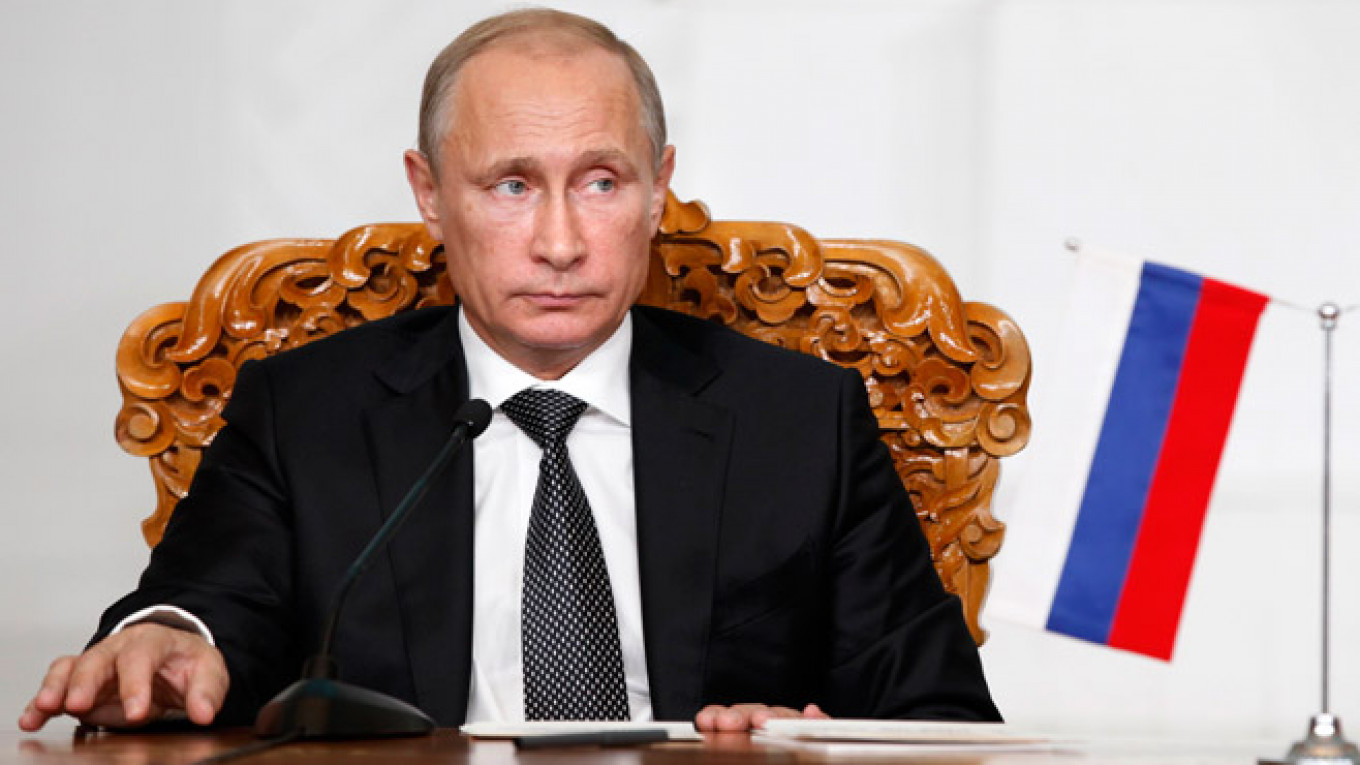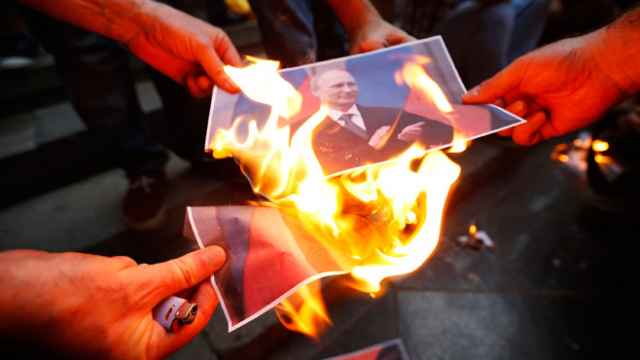As the dust settles over eastern Ukraine, the consensus is solidifying that the conflict there was the first battle of an attempted Cold War revival. A Cold War requires a Soviet Union, and the government of President Vladimir Putin has finally embraced it as a role model, more than a decade into his reign.
It is a strange Soviet Union: sans communism, but with religion thrown into the mix. It owes as much of its official ideology to the pre-revolutionary Russian Empire, with its state-dependent capitalism and traditionalism. Added to bans on political freedoms and grassroots activity, Internet censorship spreading like cancer and a crackdown on LGBT rights (admittedly mild, compared to Soviet times), this is, in essence, a nanny state with an anti-West complex and an instinctive penchant for militant — if not caveman — conservatism.
The political scientist Samuel Huntington would argue that this is a clash of civilizations spilling out into the open after Russia's failed attempt to integrate with the West, and so it undoubtedly is, to some extent. But there is also a generational aspect to the story, which is that Russia, in a nutshell, is struggling to handle the modern world.
The 21st century is a complex time in which to live. Old economic templates have been rendered null and void by the post-industrial economy, based on factors like social mobility and innovation, and championed by unruly nerds promoting crypto-currencies and using blimps to spread Internet access. State governance means sharing power, cooperating with grassroots activists and upholding the rights of minorities and majorities in a balancing act worthy of Cirque du Soleil. And that's before even getting to soft power: elusive but arguably more powerful than tanks and Buk missile systems.
Meanwhile, Putin does not use the Internet.
He was recently reported to be slowly overcoming his disdain for the world wide web, much flaunted through the 2000s. But no one would call Putin, 61, a man of the Internet age: He is a child of a time when information was disseminated by state-controlled print and television media, power meant factories and tanks (and Buks), and dissent was outlawed, not tolerated. And much of Russia's elite and general public shares this worldview because they also grew up with it.
For too many Russians, the 21st century has proved hard to handle, which is understandable, given the economic shock of trying to adjust to it. The GDP slump in Russia during the 1990s was worse than during World War II, according to leading Russian economist Konstantin Sonin. Little wonder that the nation hungered for stability, certainty, familiarity — for historical safety.
This is why Russia has fallen back on the dream of a past Golden Age. It is easier to censor or ban the Internet than to cope with independent news websites and opposition bloggers. It is easier to throw trillions at the military-industrial complex — just as the Soviets did for decades — than to foster innovation. It is easier to boost national self-esteem by piggybacking on old Soviet achievements than to painstakingly attain new feats worthy of global respect.
The Soviet revival was made easier by the fact that Russia never really got the Soviet Union out of its system, at least not nearly as thoroughly as its former Warsaw Pact satellites or even ex-Soviet republics did. Soviet bureaucrats remained the backbone of the ruling establishment — case in point: Putin — and imperial ideology was never replaced by nationalism as elsewhere, including Ukraine.
But the quest to rebuild the Soviet Union is a rearguard, doomed battle. A lot of people in Russia have already moved on beyond the Soviet dream: the 2011-2013 anti-Putin protesters were essentially people who have adjusted to modern times. They remain a minority, but time and societal evolution are hard to stop, and not even Putin is eternal. Russians colonized Siberia and pioneered space exploration: There is no reason to believe they are incapable of handling the modern world, eventually.
The one real problem is that it will take a crisis of gigantic proportions to snap Russia out of its nostalgic imperial reverie. Everyone who does not subscribe to the Soviet revival is already bracing for impact; for the rest, it is going to hurt. But this is the cost of finally leaving the past for the present.
Contact the author at [email protected]
A Message from The Moscow Times:
Dear readers,
We are facing unprecedented challenges. Russia's Prosecutor General's Office has designated The Moscow Times as an "undesirable" organization, criminalizing our work and putting our staff at risk of prosecution. This follows our earlier unjust labeling as a "foreign agent."
These actions are direct attempts to silence independent journalism in Russia. The authorities claim our work "discredits the decisions of the Russian leadership." We see things differently: we strive to provide accurate, unbiased reporting on Russia.
We, the journalists of The Moscow Times, refuse to be silenced. But to continue our work, we need your help.
Your support, no matter how small, makes a world of difference. If you can, please support us monthly starting from just $2. It's quick to set up, and every contribution makes a significant impact.
By supporting The Moscow Times, you're defending open, independent journalism in the face of repression. Thank you for standing with us.
Remind me later.







